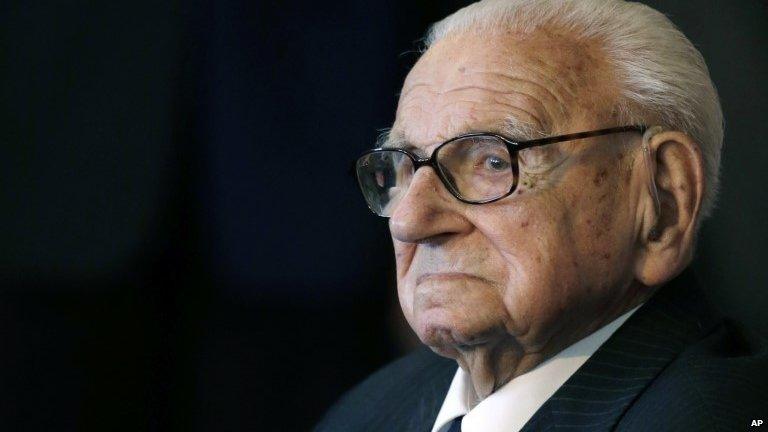Kindertransport veterans urge Calais children help
- Published
Lord Dubs and Rabbi Harry Jacobi meet unaccompanied children in Calais
Surviving members of the "Kindertransport" that brought 10,000 refugees to the UK on the eve of World War Two have visited the infamous Calais Jungle to meet lone children seeking asylum in the UK.
"If seeing is believing, I couldn't believe the condition of the camp," says Rabbi Harry Jacobi, 90, as he meets some of the 400 children who call the Jungle home.
"This is not a concentration camp... yet I feel so furious. I am ashamed with the whole of Europe not doing enough for the refugees here. This camp should be closed tomorrow."
Earlier this week, the 90-year-old rabbi and peer Alf Dubs - two men who were once refugees themselves - travelled to the camp to meet a new generation in peril.
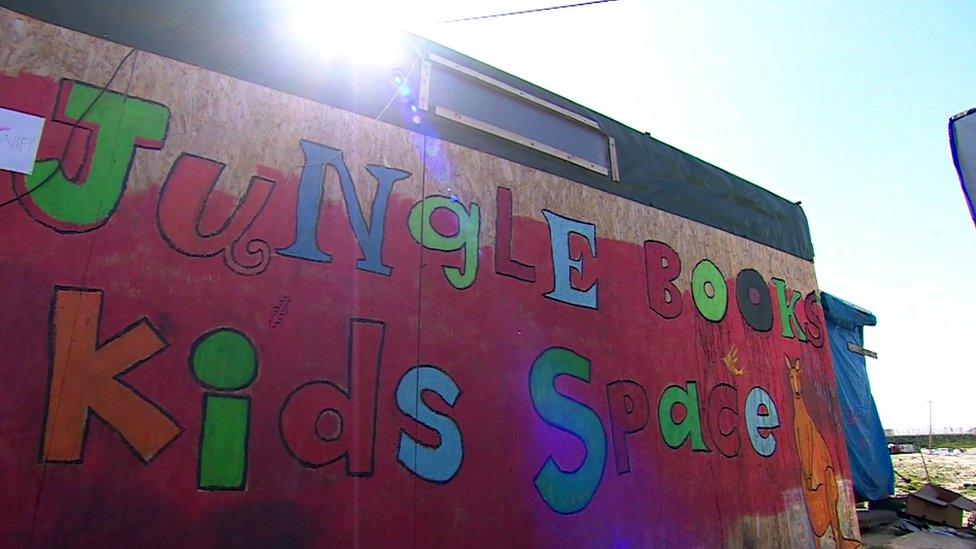
Kids at large: No formal protection in the camp - but volunteers trying
'How long will it take?'
The men met "Ashraf" and "Misaq" from Afghanistan who have lived in the Jungle for eight months.
They tell the boys about their personal refugee journeys. Rabbi Jacobi fled Nazi Germany when he was 13 and never saw his parents again. Labour peer Lord Dubs was aged just six but was later reunited with his mother and father.
In turn, the boys tell them what they think will be good about life in Britain - school and playing cricket, like they did at home.
The youngsters ask how long they have to wait to get to Britain.
"We're going to do our best, we're pushing hard to make the government do it quickly," says Lord Dubs.
"It's a great country. I hope you get there soon."
'Forced to leave'
Misaq says his father was killed by the Taliban - "Bomb, bomb" he says in the few words of English he knows. His mother is back in Afghanistan and he has little contact with her. Both had made it across Asia and Europe after their families paid people smugglers.
Every night the boys say they are afraid - particularly of people who drink.
"Please tell him we were forced to leave. We haven't come here through our own will, we were forced out and this isn't somewhere we should be. You are the first one to come here properly and ask us what we want, we want to thank you," they say to their visitors via a translator.
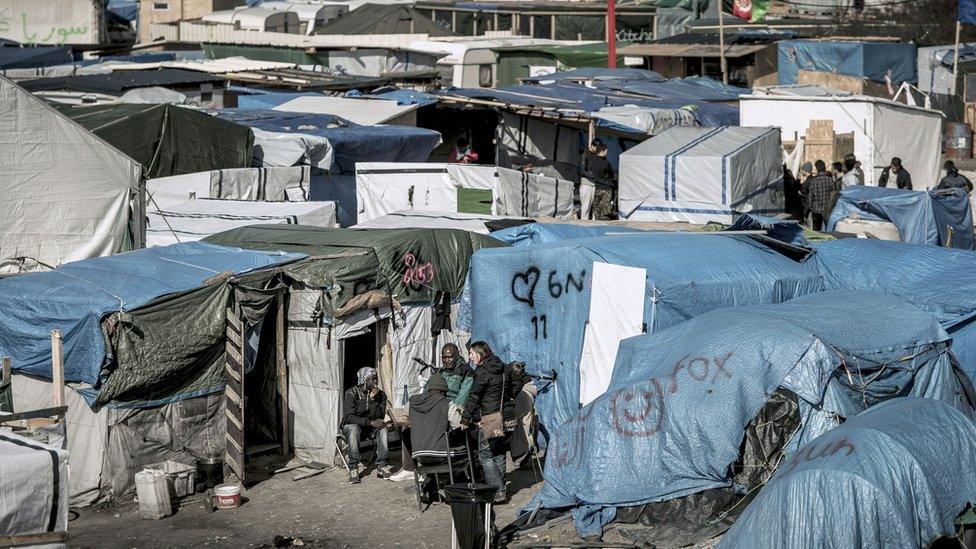
The rabbi said the conditions in the camp were 'intolerable'
Lord Dubs says he can identify with one of the boys.
"He was about the same age I was when I came on the train from Prague," he explains.
According to charity Citizens UK, the two boys both have a legal claim to come to Britain, after the High Court ruled that asylum applications for children with a relative in Britain should be dealt with by the UK so they can be reunited.
For months, Lord Dubs lobbied the government to do more to help these children and others in Europe's migrant crisis - and last month it finally agreed to do so.
His campaign continues because there is no certainty yet how many children will eventually come to the UK - or how soon.
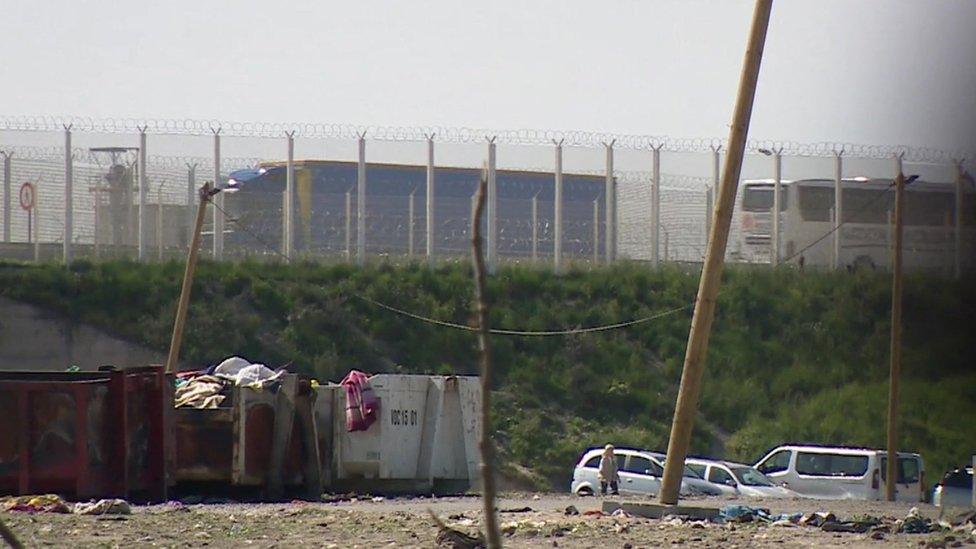
Port motorway: Overlooks The Jungle
'Get a move on'
Number 10's position is that the first arrivals are expected "before the end of the year".
Lord Dubs and Rabbi Jacobi said the government's commitment was not enough.
"I think I am far more determined than ever to push the British government to say, 'Look, these are young, unaccompanied, refugee children here, the amendment in Parliament was designed to deal with those children, to help them get to Britain, we should get a move on,'" he says.
"The conditions are intolerable for children to be on their own, we shouldn't as a civilised continent allow this to go on for another day longer."

Almost 90,000 unaccompanied minors seeking asylum in Europe
Most are male and aged between 16 and 17
13% are under 14 and some as young as eight or nine years old
Two largest nationalities are Afghan and Syrian
Source: Eurostat

What was the Kindertransport?
As conflict with Nazi Germany loomed - and it became increasingly apparent that Europe's Jews weren't safe - the UK took in 10,000 of their children. The last ship arrived two days before war was declared.
Many of these children, like Rabbi Jacobi, who was 13, never saw their parents again. He had initially escaped in 1939 from Berlin to Holland, which was invaded by the Germans the following year.
"So we were anxiously waiting what would happen to us, and Holland was unprepared," he explains.
"So on 15 May, five days after the invasion, it looked as if Holland would be occupied and a non-Jewish woman persuaded a cargo boat captain to take us away," he said.
"We had no idea where we would go... but five days after leaving Holland we arrived at Liverpool."
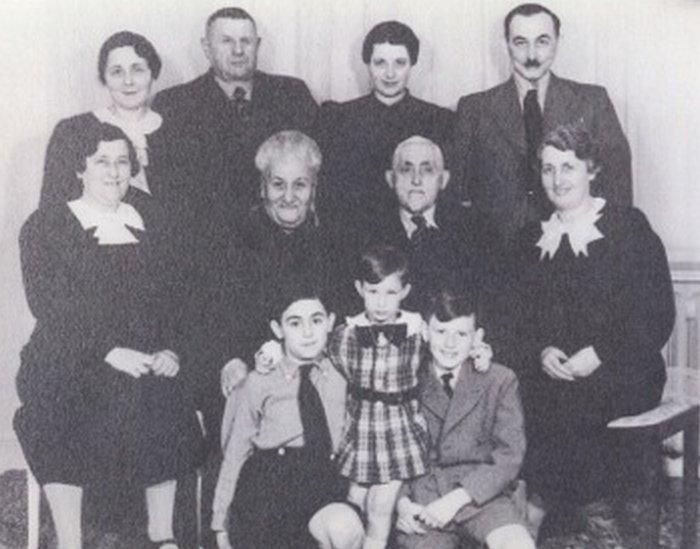
Rabbi Jacobi (bottom right) never saw his parents again
Lord Dubs' escape from the then-Czechoslovakia was different. Aged six, his father had already made it to the UK - and his mother was also later able to flee.
"I can still see her standing at Prague station, German soldiers with Swastikas," he said.
"I was one of the youngest. I didn't fully realise what was going on - but when we got to the Holland border the older children cheered. I knew it was significant but I didn't know why."
The Kindertransport is a story of the triumph of hope in the face of the worst possible odds. So what's it got to do with Calais?
The circumstances are completely different - but many of the Kindertransport veterans say the moral imperative to act is the same.
Children 'could die'
Home Office officials in London must now find homes in Britain for both eligible Calais children, but also an unspecified number from France, Italy and Greece under the commitment given by the prime minister to Lord Dubs.
But just 33 of 157 identified in Calais have so far moved to the UK - and many cases could take months to resolve because of the proof needed by officials.
Liz Clegg, from the charity Help Refugees, says children have been killed in lorries and by traffic around the camp because of their determination not to remain in France.
"They are too young and they have been told by people at home to go to the UK.
"So we can't stop them from attempting to get on the lorries or go to the trains," she says.
"They are on a mission. Any one of these children could die tonight."
Watch the Victoria Derbyshire programme on weekdays between 09:00 and 11:00 on BBC Two and the BBC News Channel.
- Published19 May 2016
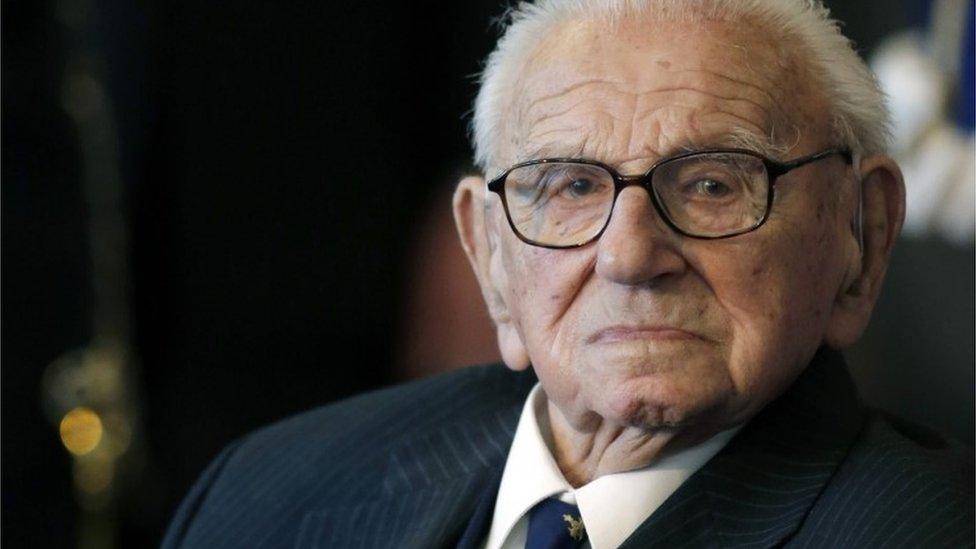
- Published26 April 2016

- Published26 April 2016
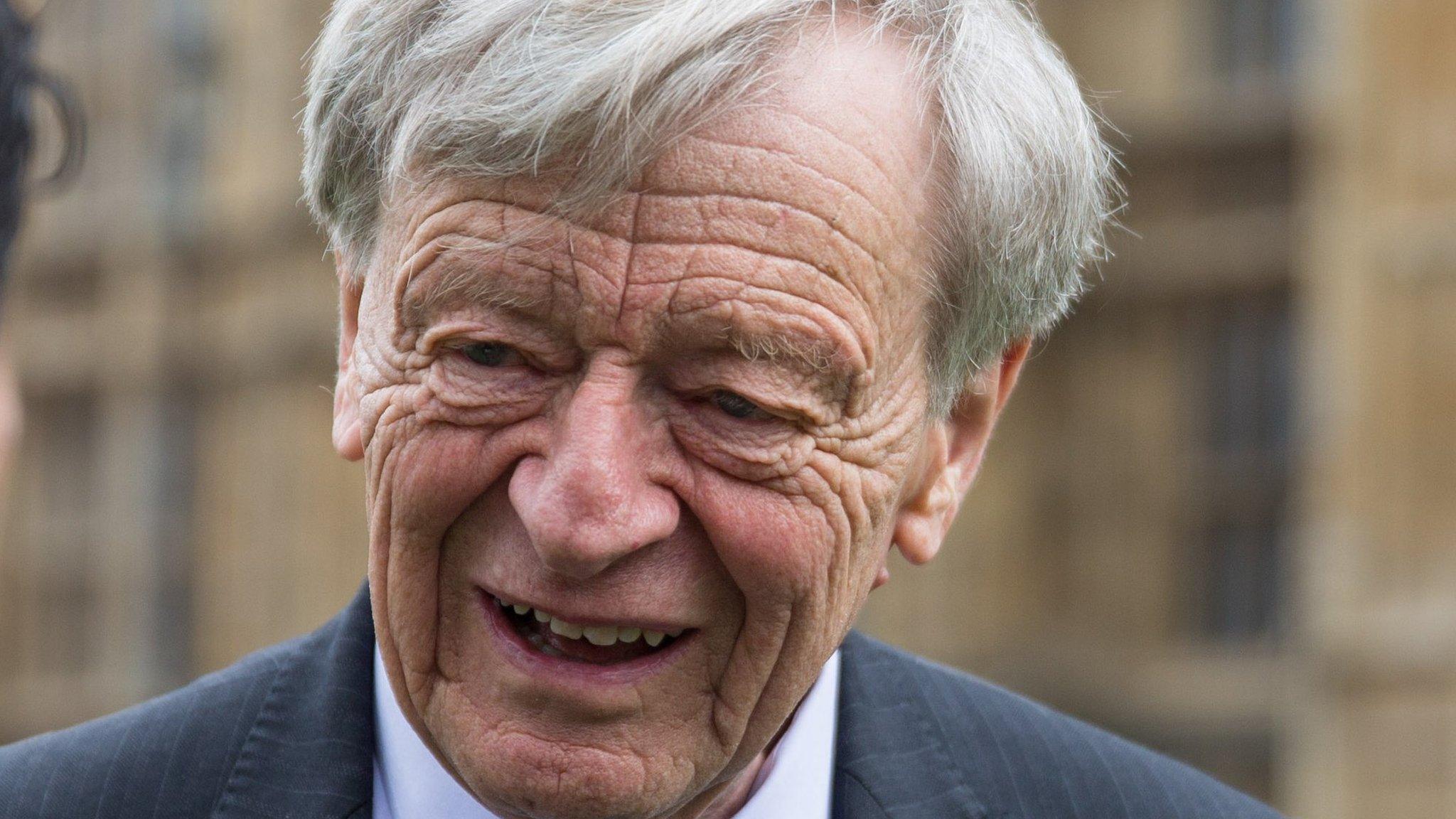
- Published1 July 2015
